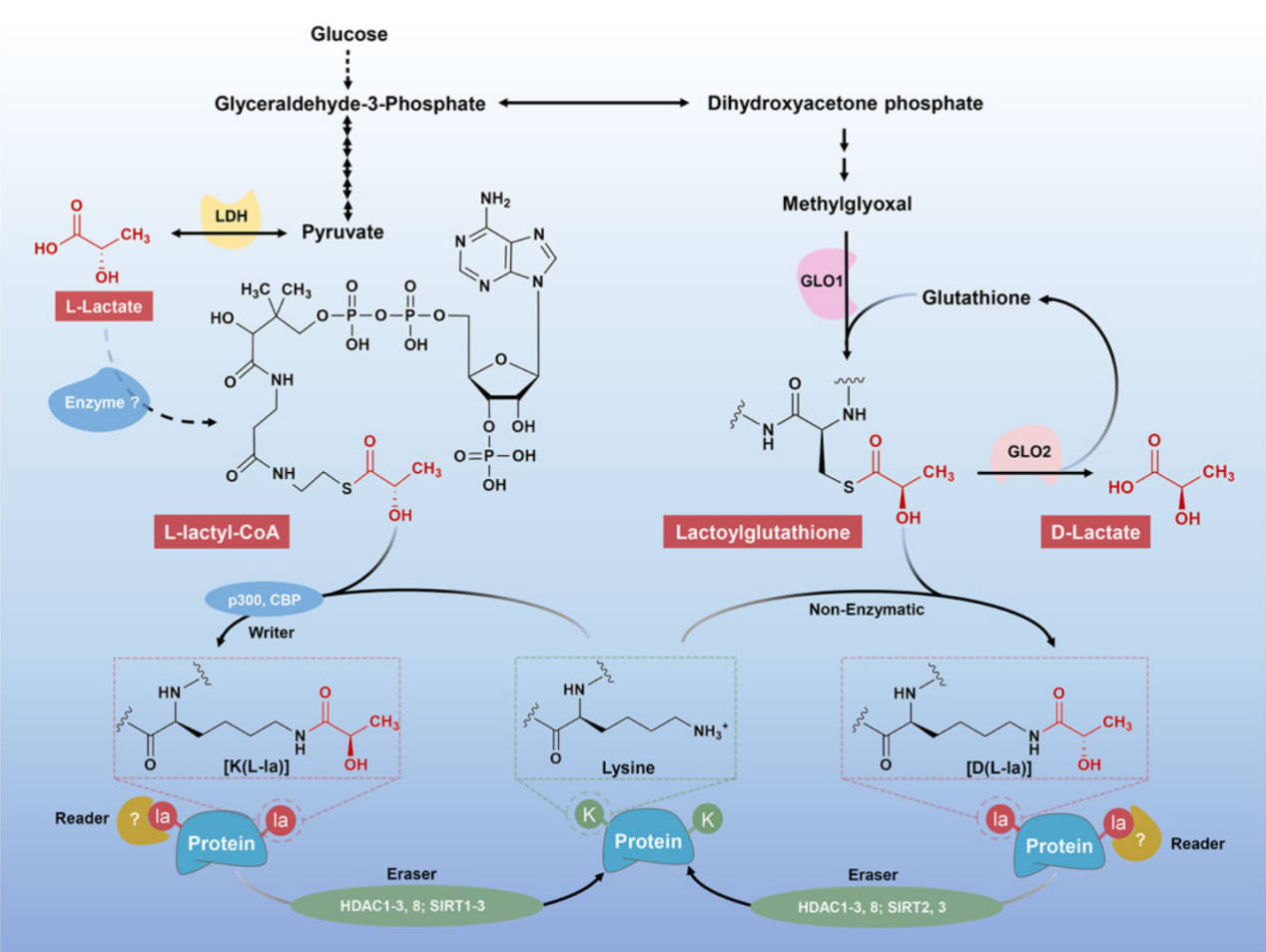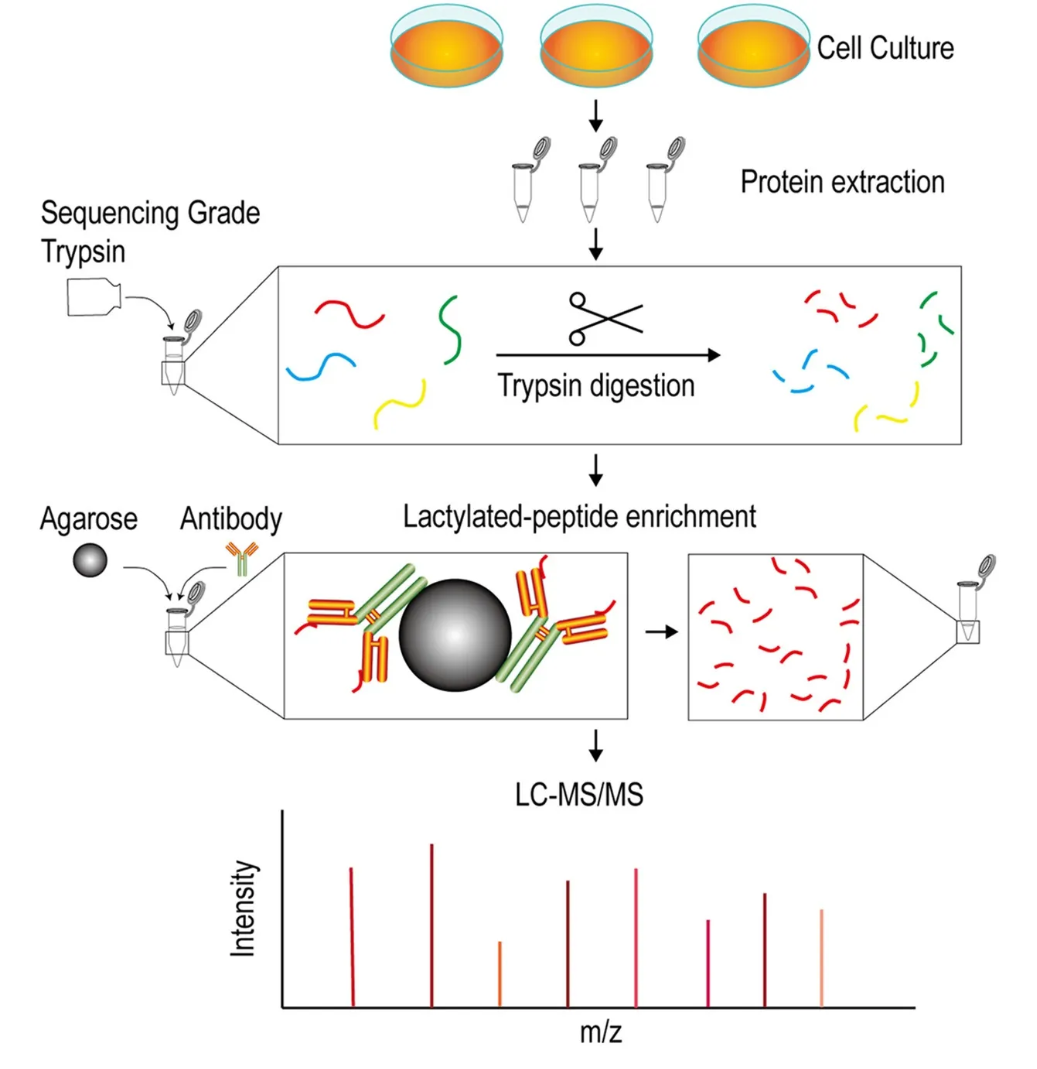Lactylation Analysis Service
Lactate, the final product of glycolysis, serves not only as a carbon source but also as a key signaling molecule and immune regulator. Protein lactylation, a post-translational modification (PTM) regulated by intracellular lactate levels, has recently emerged as an important epigenetic landscape influencing cell fate, embryonic development, inflammation, tumor progression, and neurological functions. MtoZ Biolabs provides a comprehensive Lactylation Analysis Service that integrates advanced mass spectrometry platforms, enrichment strategies, and bioinformatics tools.
1. Target Protein Lactylation Analysis
This service focuses on site-specific identification and quantification of lactylation on a particular protein of interest. Using targeted mass spectrometry (such as PRM or MRM), we precisely detect and validate lactylated residues, evaluate modification stoichiometry, and assess changes under different biological conditions. This approach is ideal for hypothesis-driven studies requiring in-depth functional characterization of a single protein.
2. Lactylation Proteomics
At the proteome-wide level, our lactylation proteomics service enables large-scale identification and quantification of lactylated proteins across biological samples. By integrating efficient peptide enrichment with high-resolution LC–MS/MS and bioinformatics-based pathway analysis, we provide a global overview of lactylation events and their biological implications. This approach is particularly suited for exploring regulatory networks, discovering biomarkers, and elucidating lactate-dependent signaling pathways.
What Is Lactylation?
Lactylation is a lysine post-translational modification in which a lactyl group, derived from cellular lactate, is covalently attached to protein residues. Lactate, once regarded as a simple metabolic byproduct of glycolysis under hypoxic conditions, is now recognized as a signaling molecule that directly influences gene regulation and cellular function through this modification.
Two major forms of lysine lactylation (Kla) have been described. K(L-la) arises through an enzymatic mechanism in which L-lactate is transformed into L-lactyl-CoA, which then acts as the acyl donor for histone modification. This process involves acyltransferase “writers” such as p300 and CBP, highlighting lactylation as an epigenetic mark comparable to acetylation. In contrast, K(D-la) occurs via a non-enzymatic route, where reactive metabolites such as methylglyoxal (MGO) and lactoylglutathione (LGSH) give rise to D-lactyl-lysine adducts. While L-lactylation is actively regulated by both writer and eraser enzymes, D-lactylation may accumulate in the absence of a dedicated eraser, though histone deacetylases and sirtuins have been implicated in its modulation. Beyond histones, lactylation has been identified on non-histone proteins, broadening its biological significance to include roles in metabolism, immune responses, and cellular stress adaptation. As research continues to uncover its regulatory mechanisms, lactylation is emerging as a major focus in fields such as cancer biology, inflammation, and metabolic disease, offering new opportunities for biomarker discovery and therapeutic innovation.

Liu, X. et al. Front Cell Dev Biol. 2022.
Figure 1. Different Mechanisms of "Lactylgenesis"
Analysis Workflow

Cheng Z. et al. iScience. 2024.
Figure 2. Lactylation Modification Analysis Process
Sample Submission Suggestions
1. Sample Types
We accept various biological sample types, including but not limited to:
-
Cultured cells
-
Microorganism samples
-
Animal or human tissue
-
Plant tissue
-
Biological fluids such as plasma or serum
-
Protein extracts
2. Storage and Transport
-
Samples should be snap-frozen in liquid nitrogen and stored at –80°C until shipment.
-
Ship samples on dry ice.
-
Avoid repeated freeze–thaw cycles.
*Note: If you have special sample types or require additional guidance, please contact us for personalized support before sample preparation.
Service Advantages
✔️High-Resolution Profiling
Advanced LC-MS/MS platforms enable precise detection and site-specific identification of lactylation, even at low abundance.
✔️Customizable Study Designs
Flexible options for global lactylome profiling or focused validation tailored to specific research questions.
✔️Reliable and Reproducible Data
Stringent quality control ensures consistency, robustness, and publication-ready results.
✔️Experienced Scientific Team
A dedicated team of proteomics and bioinformatics experts provides guidance from experimental design to data interpretation.
Applications
-
Epigenetic regulation
-
Cancer research
-
Immune response and inflammation
-
Metabolic regulation
-
Biomarker discovery
Deliverables
1. Comprehensive Experimental Details
2. Materials, Instruments, and Methods
3. The Detailed Information of Lactylation Analysis
4. Mass Spectrometry Image
5. Bioinformatics Analysis
6. Raw Data
Through advanced mass spectrometry and expert bioinformatics analysis, the Lactylation Analysis Service at MtoZ Biolabs delivers reliable, high-quality data and actionable insights. Whether for basic research or translational applications, our service provides a powerful platform to explore the biological significance of lactylation. Contact us today to discuss your project and request a customized proposal!







